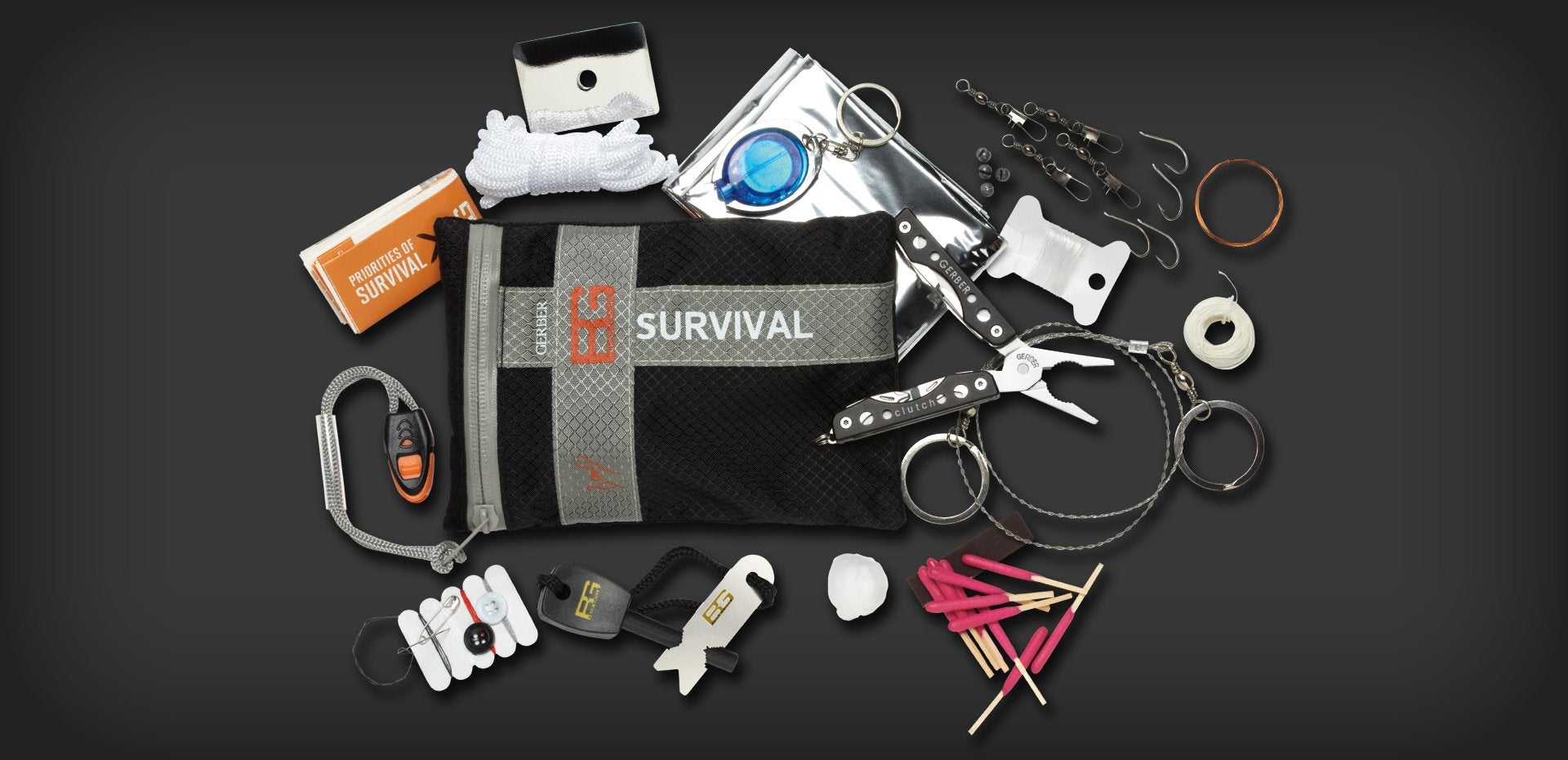The 9 Survival Essentials: a Complete List
Jon Stokes 01.04.18

There are a lot of new people coming into the survival/preparedness scene right now, asking how and where to get started.
I’m not going to give you a list of specific items to buy in this post, though of course I have opinions on that. Rather, what follows is a list of the main categories of preps that you’ll need in any kind of emergency situation. These are more or less in order of importance.
Water: You can only go about three days without drinking water, so it’s at the top of the list. To cover this area, you need at least two options: a purifier, and a store of drinkable water. Don’t just go with one or the other, do both.
Fire: Fire is comfort, signalling, warmth, cooking, and one of the most important things you’ll need access to in an emergency. I recommend keeping a cache of Bic lighters and storm matches, and leaving flint/steel and other firestarting methods as last-resort options.
Fuel/transportation: I’ve heard time and time again from folks who’ve been there, and I’ve learned it myself in evacuations, that the number one survival skill in a real emergency is knowing when to move and when to stay put. But you’re not going anywhere if you’re out of gas. So keep your gas tank over half full, and keep fuel around in containers. Regularly rotate the stored fuel, because it does go bad.
Comms and intelligence: This category encompasses AM/FM radios, walkie talkies, and smartphones, as well as reference materials (paper maps and compasses) and detectors for environmental hazards like radiation. I said in the previous item that the number one survival skill is knowing when to move and when to stay put, and the items in this category will help you make the decision of when/where to move. And in the case of walkies and maps, they’ll also help you execute any movement plans.
Food: This one is hard to get right, and it’s expensive. Start with 72 hours worth of long-term storage food for you and yours. It should be a mix of things you can eat without preparation and dehydrated food like Mountain House (for the good weight/calories ratio, in case you need to move.)
Shelter: Make sure you’ve got options in this category, everything from materials to improvise a shelter (e.g. cordage, a tarp, a shovel) to places you can go in different disaster scenarios (also known as a “bug-out location”).
Medical/hygiene: As a veteran of the Balkans conflicts once said of surviving in bombed out urban centers, you can’t go out and shoot a bottle of hand sanitizer in the wild and take it back to camp. Same goes for soap, toothpaste, wipes, medical supplies, and the like. This stuff is cheap and can be acquired anywhere from Target to Costco.
(Note that I always consider air quality gear — N95 masks, gas masks, respirators — under the “medical/hygiene” section. But there’s a decent case for breaking them out into a separate “air” category, along with things like radiation & air quality monitors that I put under “comms and information resources.” There’s more than one way to slice some of these things up.)
Clothing: Put together a seasonally appropriate outfit or two that you could comfortably spend a few months in, with intermittent washes, and put it in your “go bag” where you can grab it and run out the door with it. You don’t want to be frantically digging through your laundry wondering where that shirt is when you could be loading more important gear. Think especially hard about your footwear and your belt, because both of those are critical for comfort and safety. And don’t forget a hat.
Self defense: If you’re so new to this whole thing that you don’t already have strong opinions on how to handle this category, then I’ll give the only two answers you need: 1) your first priority is to get a handgun in 9mm, and 2) your second priority is a centerfire long gun, probably an AK-47 variant. (I don’t want to fight the AR vs AK battles here, because I personally run an AR, but the AK is my recommendation for non-gun-people who want to stick something in a closet and forget about it until the time comes. Either that or a 12 gauge shotgun, like the Remington 870.)
That’s it, the whole list. There’s a lifetime worth of skills, gear, debate amongst schools of thought, and everything else in the above, but if you think in terms of these nine categories you’ll much further down the road that the person who’s focused on gear or guns or other fantasy stuff.